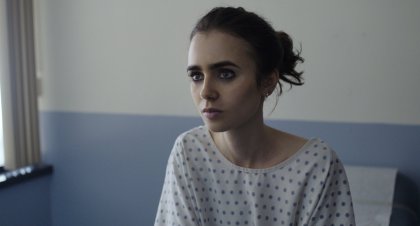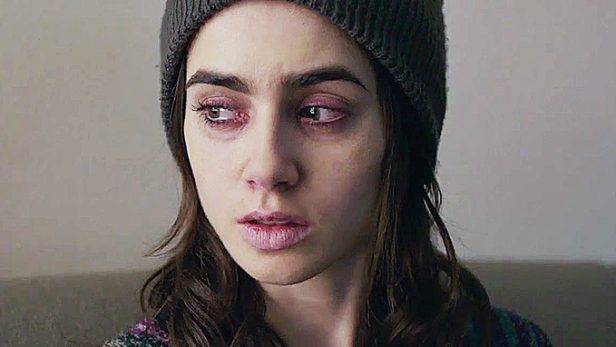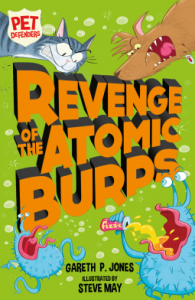


19/07/17
Honestly, I wasn’t at all sure I wanted to watch this film, and might not have done had the weather been nicer, had I not already seen all Cineworld had to offer, and had I not imposed upon myself a ‘Dry July’ and thus removed the option of going to the pub. I’d read Hadley Freeman’s scathing review in The Guardian and feared it might be a misogynistic, voyeuristic old mess. But, actually, this Netflix Original well exceeded my expectations, and I think it merits a (cautiously) positive response.
To be clear, I have no personal experience of eating disorders, and am in no way dismissing Freeman’s more informed opinion. Hers is the insider’s view. But, from an outsider’s perspective, this film ain’t bad at all.
It tells the tale of Ellen (or Eli), played with frail intensity by Lily Collins (last seen as Red, an animal rights activist in Okja, looking a lot healthier than she does here). Ellen has suffered from anorexia for years; the film begins with her leaving a treatment centre, and moving in with her half-sister, Kelly (Liana Liberato) and stepmother, Susan (Carrie Preston). It’s clearly an awkward fit: although Ellen and Kelly get on very well, Ellen finds Susan insensitive and unhelpful. But she has little choice: her father, who ostensibly lives in the same house, is wholly absent from the film, and her mother, Judy (Lili Taylor), who has recently relocated to Phoenix with her partner, Olive (Brooke Smith), is adamant that she “cannot deal” with Ellen’s problems in her life. In desperation, frightened by Ellen’s plummeting weight and left alone to cope with it, Susan makes a last-ditch attempt to find a solution, and settles on the in-patient therapy offered by unorthodox doctor, William Beckham (Keanu Reeves).
Actually, Dr Beckham doesn’t seem to do much at all. He talks honestly to Ellen without pulling any punches; he tells her that, if she continues as she is, it won’t be long before she dies. Beyond that, it’s hard to see what the actual treatment is. There’s an attempt to make mealtimes less stressful (the in-patients all have to sit at the dinner table, but they’re not compelled to eat), and a calm and caring atmosphere is created in the centre. Ellen makes friends there, most notably the intensely irritating Luke (Alex Sharp), whose know-it-all attitude is sickeningly patronising – although Ellen doesn’t seem to notice, so perhaps that’s just me – but still, it’s not made clear how this place and process help.
But I don’t think the film is really about that: it’s not a treatment manual. It’s more an exploration of the impact and effects of this terrible condition, both on the sufferers and on those around them. Characters that begin as almost comic caricatures (e.g. Susan) are revealed as complex and conflicted, struggling to deal with watching Ellen self-destruct. Judy’s anguish is made clear too, in a later scene, as is Ellen’s fear and her inability to stop.
Freeman condemns the film for glamourising anorexia (“it’s not all thigh gaps and eyeliner”), and there’s no denying that Collins looks beautiful most of the time. But I’m not sure that’s this film’s fault: as scarily skinny as she is in this, Collins looks exactly like a lot of film stars and fashion models; her big-eyed, sharp-jawed face is not alien at all. She’s the epitome of what we’re told is good. And maybe, just maybe, that’s an important point to make.
I don’t think this is a film that purports to have the answers. I think it’s just a story, a tragic tale of one girl’s life. Of course, that doesn’t let it off the hook. But it seems to be a tale well-told, even if there is no universal truth revealed.
3.9 stars
Susan Singfield
Advertisements Share this:




